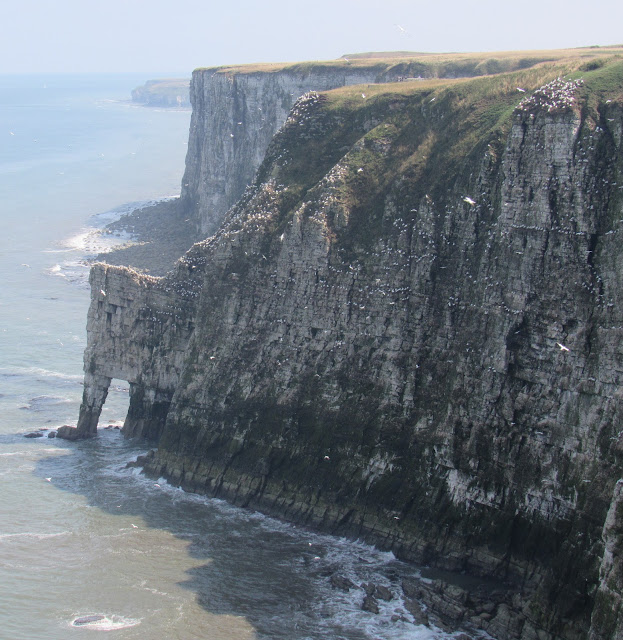Seabirds are currently swarming to the sea cliffs of Yorkshire
FURTHER research on the impact of offshore windfarms on seabirds is to be carried out this summer on Yorkshire's Flamborough and Filey Coast.
The RSPB is hoping to recruit a senior research assistant to help track the movements of kittiwakes, gannets, guillemots and razorbills that have been fitted with GPS logging devices.
Says the charity: "A rapid increase in renewable energy generation is key to combat climate change and mitigate its effects on people and ecosystems all over the world.
"However, renewable energy developments can also have negative impacts on species through direct mortality or habitat loss which have to be considered in the planning process.
"For offshore wind energy developments, these effects can be hard to predict and even harder to observe as empirical data is scarce for interactions that occur far offshore.
"One way to address this gap in knowledge is to use bird-borne devices such as GPS loggers to study the distribution and behaviour of seabirds in and around windfarms."
It continues: "Over the last decades, tracking seabirds with bird-borne devices such as GPS loggers has been able to provide unique insights into their offshore life.
"The knowledge gained from this approach helps drive and focus conservation action all around the world, and the RSPB is now one of the front runners when it comes to its employment in an offshore wind energy context."
Accommodation will be provided at Bempton for the successful candidate, and the contract, beginning in May, is for 5.5 months with wages equivalent to an annual salary of £23,939.00 - £26,558.00.
The role is not for beginners.
Says the job description: "It will involve the planning, coordination and delivery of the tracking and monitoring work on four seabird species in a close-knit team.
"It will also include temporary line management of up to two research assistants, data management, basic data analysis, report writing, the programming and deployment of remotely downloadable tags, the set-up as well as maintenance of the data download network (e.g., the receiver stations) and the collection of complimentary monitoring data.
"The work will commence under training and supervision by a conservation scientist."
More details from: Saskia.wischnewski@rspb.org.uk

No comments:
Post a Comment